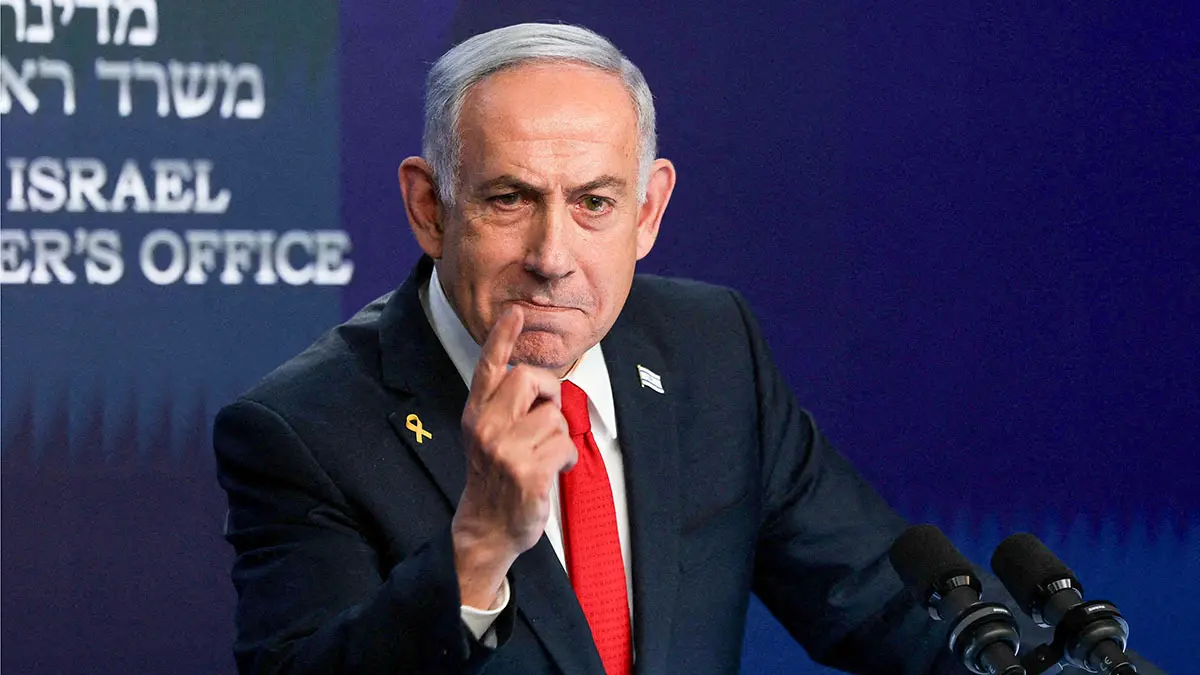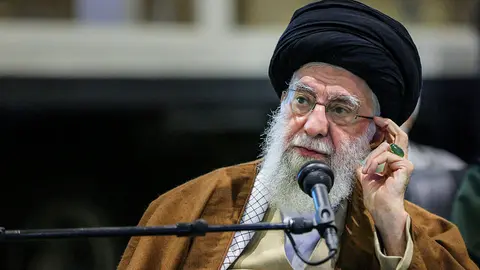Israel steps up offensive against Iranian military and nuclear infrastructure

- Interceptions and airspace defence
- Tehran brands Washington an ‘accomplice’ and rules out negotiations
A week after the start of Operation ‘Rising Lion’, aimed at weakening the nuclear capabilities of the Islamic Republic of Iran, the Israeli army announced that it had carried out a series of coordinated attacks overnight against dozens of military targets on Iranian territory. Among the targets hit was the Organisation for Defence Innovation and Research (SPND), identified by Jerusalem as a key pillar in the Iranian regime's nuclear weapons development.
The bombings were concentrated in Tehran, where several industrial missile production facilities, strategic component manufacturing sites and the central building of the SPND, founded in 2011 by Mohsen Fakhrizadeh, considered the father of Iran's military nuclear programme, were destroyed. In total, more than 60 combat aircraft, guided by intelligence from the Military Intelligence Directorate, were involved, using around 120 high-precision munitions to destroy key infrastructure built over many years by the Iranian Ministry of Defence.
What did the IDF accomplish in Iran overnight?
— Israel Defense Forces (@IDF) June 20, 2025
✈️60+ fighter jets struck dozens of military targets in Iran using approximately 120 munitions.
⭕️Several industrial sites used to manufacture missiles were struck in the Tehran area. These sites served as a key industrial center… pic.twitter.com/lQtxFIbFyc
In addition, the Israeli Air Force (IAF) attacked missile and radar systems in the Isfahan area, which were intended to shoot down Israeli aircraft and hinder their freedom of manoeuvre in Iranian skies. According to Israeli Defence Force spokespeople, these strikes seek to expand Israel's freedom of air operation over Iran and ensure the tactical superiority necessary to continue neutralising the regime's offensive capabilities.
Interceptions and airspace defence
The night-time attacks, concentrated in Iran's industrial and nuclear heartland, follow the interception of surface-to-surface missiles and unmanned aerial vehicles (UAVs) launched in recent days towards Israeli population centres. According to the IDF, operations will continue with the aim of drastically reducing the Iranian regime's firepower, preventing direct attacks on civilians and ensuring air supremacy over territory.
While the offensive strikes were being carried out, Israel maintained its air shield on high alert. The Air Force and Navy have so far intercepted hundreds of drones launched from Iran towards Israeli territory, successfully stopping more than 95% of the threats approaching the country's airspace. Observation units, together with fighter jets, missile-launching ships and air defence systems, are operating in coordination around the clock to protect civilian population centres.
Along the same lines, three missile launchers in Iran that were ready to fire on Israel were destroyed in recent days, along with the commander responsible for those operations. However, after more than 13 hours without firing, a missile struck the city of Beer Sheva this morning, causing destruction in the area but no fatalities, according to Israeli health authorities. This attack occurred just one day after the serious bombing of Soroka Hospital in the same city.
This is my cousin’s apartment in Be’er Sheva after the missile strike. Thank God they were in the safe room and are safe. pic.twitter.com/8juRdxZmsR
— Eli Kowaz - איליי קואז (@elikowaz) June 20, 2025
Tehran brands Washington an ‘accomplice’ and rules out negotiations
As the exchange of fire continues, Iranian Foreign Minister Abbas Araghchi stated that the regime will not enter into negotiations while Israeli bombing continues. In his words, he accused Western countries of failing to condemn Israel's ‘aggression’ and pointed to the United States as an ‘accomplice’ to the military actions, despite not participating openly in them.
Regarding possible US intervention, the White House reported that President Donald Trump will make a decision on the country's direct involvement in the conflict between Iran and Israel in the next two weeks.
The moment Iranian missiles struck Ramat Gan (published with the censor’s approval) pic.twitter.com/fsR2zOhddL
— Amit Segal (@AmitSegal) June 19, 2025
During a press conference, press secretary Karoline Leavitt conveyed a direct message from the president: ‘Considering the high likelihood of negotiations with Iran in the near future, I will make my decision on possible intervention in the next two weeks.’
When asked about the message to Trump supporters who are expressing concern about possible military involvement, Leavitt responded bluntly: ‘Trust President Trump.’ She also stressed that the president's top priority is to prevent Iran from successfully developing a nuclear weapon.










